River Guardians
2022-06-08TextbyLiYuqiang
Text by Li Yuqiang
Photographs courtesy of Li Yuqiang
May 4, 2022: Chinese researchers reach the top of Mount Qomolangma and install the world’s highest automatic weather station at an altitude of 8,800 meters to study the effects of climate change on the environment of the Qinghai-Tibet Plateau.
The feat enabled Chinese scientists to directly collect data for the first time from the summit of the world’s highest mountain.It also marked a crucial milestone in China’s second comprehensive scientific expedition to the plateau, which began in 2017.Xinhua


May 14, 2022: A Chinese-made C919 passenger jet takes off for a test flight at Shanghai Pudong International Airport.
The first C919 large passenger jet intended to enter service with China Eastern Airlines completed its debut test flight in Shanghai,bringing the official delivery date of the aircraft model for commercial flights one step closer, air industry experts said.
The twin-engine, single-aisle aircraft, comparable to the updated Airbus 320 and Boeing’s new-generation 737 planes, made its maiden flight on May 5, 2017.To date, its producer, Commercial Aircraft Corp of China, has received 815 orders from 28 Chinese and foreign companies.by Xu Bingnan
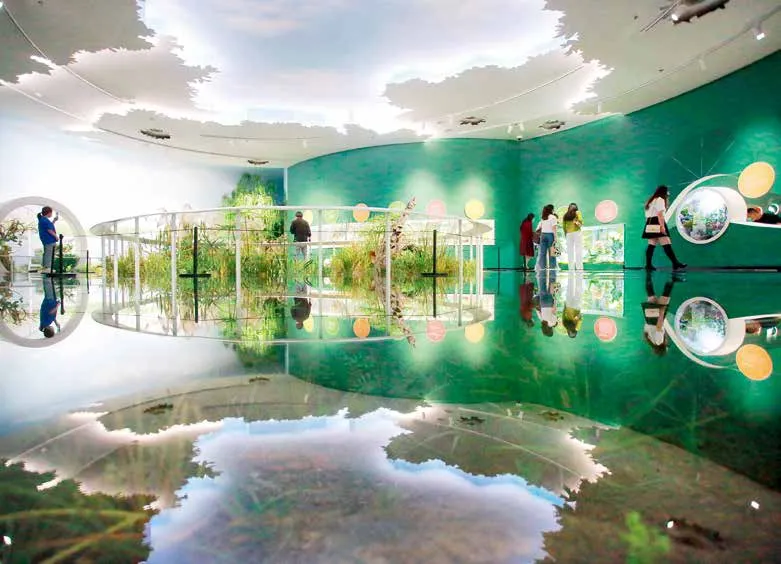
May 17, 2022: People visit a canal museum in Yangzhou City, eastern China’s Jiangsu Province.
International Museum Day on May 18 was celebrated with a variety of online and offline activities across China.According to statistics from the National Cultural Heritage Administration, 6,183 museums had registered on the Chinese mainland as of the end of 2021, making it among the global leaders.Furthermore, despite the sporadic and lingering impact of COVID-19, over 3,000 virtual exhibitions and over 10,000 educational programs were organized online by Chinese museums last year, attracting 4.1 billion views in total.Xinhua
A well-preserved dinosaur embryo fossil.Two dinosaur embryo fragments from the Upper Cretaceous have been found in eastern China’s Jiangxi Province, according to a thesis published on May 11.
The finding appears to be the most complete duck-billed dinosaur embryo ever scientifically recorded in an ellipsoid egg with a diameter of roughly nine centimeters.It was determined to be from the Late Cretaceous strata in Jiangxi, dating back to about 72 to 66 million years ago.
Since 1859, many dinosaur egg fossils have been found in the Mesozoic strata around the world including China, especially fossils belonging to the late Cretaceous period.Very few of the previously discovered eggs still contained fossilized embryos,making the specimen one of the rarest existing fossils to date.These fossils could provide valuable information for the study of the reproductive behavior, evolution,and paleoecology of dinosaurs.Xinhua
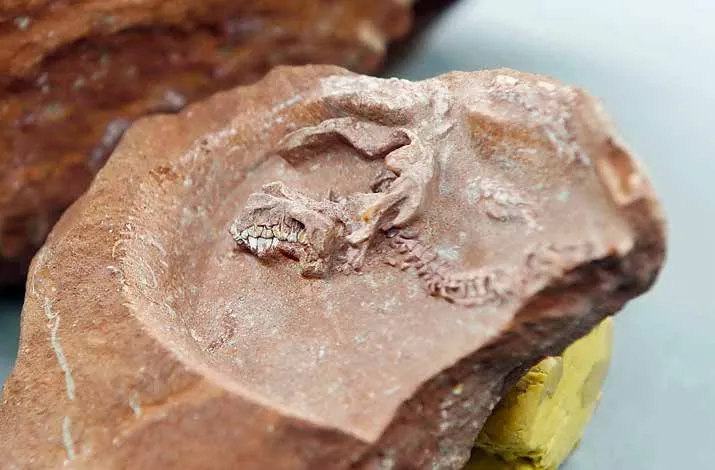
May 2, 2022: Tourists camp at a site in Wuyi County, eastern China’s Zhejiang Province.
Camping proved popular during this year’s May Day holiday in China,with many unable to travel far choosing to at least escape city life for the serene surroundings of nature while abiding by COVID-19 prevention and control measures.
The Ministry of Culture and Tourism recently announced that short-distance tours were the most popular choice among travelers over the five-day break due to the tightening of travel restrictions aimed at combating the spread of the novel coronavirus epidemic.Tour products that featured camping and recreational vehicles gained popularity among travelers, especially young and trendy people looking for new ways to travel.IC
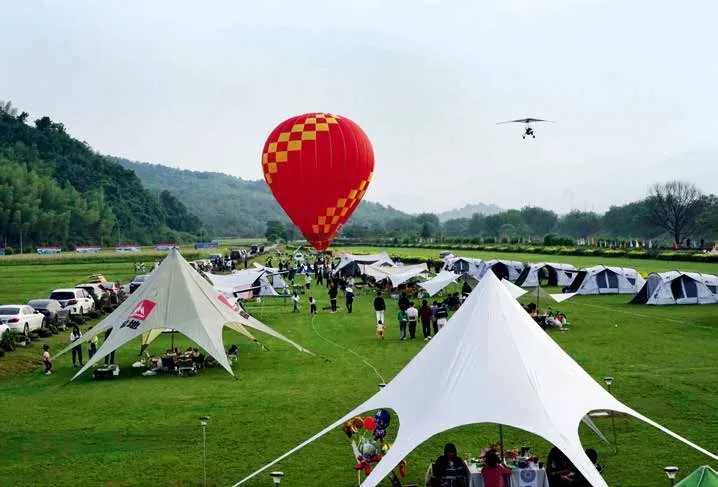
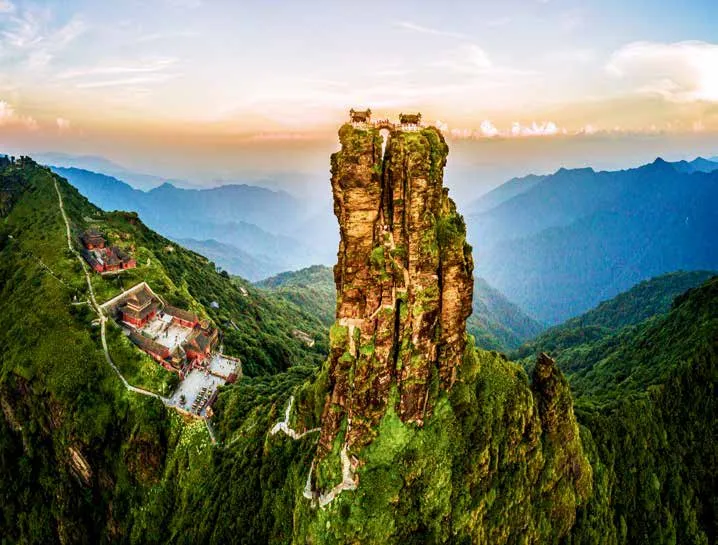
An aerial photo of Mount Fanjing in Tongren City, southwestern China’s Guizhou Province.
The National Park Administration of China approved the establishment of Fanjing Mountain National Park in Tongren, according to the Guizhou provincial forestry and grassland bureau.“Establishing the park is highly significant for building a protective shelter for the area’s environment in the upper reaches of the Yangtze River and maintaining regional biodiversity,” the bureau said.
With rich natural resources and high vegetation coverage, the mountain is home to the national first-class protected golden snub-nosed monkey and rare flora and fauna, which helped it be listed as a UNESCO World Natural Heritage site in 2018.IC
Beijing is built on water and continues to thrive on it.For centuries, water bodies like rivers and lakes determined the location, layout,and formation of the central axis of Beijing.My engagement in Beijing’s water protection campaign helped me grasp the ancient city’s wisdom of water management over the past eight centuries since 1153 when it became the capital of the Jin Dynasty (1115-1234).I also experienced the natural beauty of rivers in Beijing first-hand and witnessed the evolution of the city’s Qinghe River and its guardians when exploring ways to engage the public in river management and protection.
In 2014, Friends of Nature (FON),one of the earliest environmental protection organizations in China,launched a research and protection program on the Qinghe River,and I joined two years later.“Only if we understand, can we care,” said British ethologist Jane Goodall.“Only if we care, we will help.Only if we help, we shall be saved.”Goodall’s feelings became clearer and clearer to me as I got more deeply involved in the river protection from volunteer to worker,program consultant, and now campaigner.
A glance at the map of Beijing shows many winding rivers.According to a 2019 report on water ecology monitoring and health evaluation in Beijing, a total of 425 rivers belonging to five water systems flow through the city.Some places in Beijing are named after the Qinghe River, like Qinghe Sub-district and Qinghe Bridge.My stories began with this river.
The Qinghe River was once polluted because of urban economic development and population expansion.Despite pollution control and ecological remediation efforts in recent decades, the water quality of theriver has not always been good.The purpose of FON’s Qinghe program is to keep the river clean all the time.
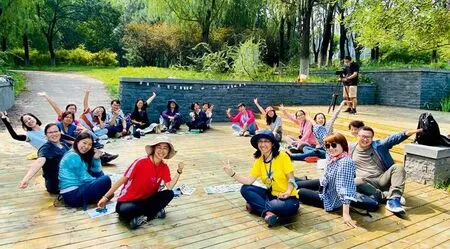
September 2021: Trainees share experience at FON’s first training session for river tour guides at the southern part of Olympic Forest Park in Beijing, capital of China.
Participants in the Qinghe program researched and analyzed the river from 2014 to 2019.Starting with basic information on the river course, fieldworkers checked water quality, visited water reclamation plants, studied the river ecosystem and biodiversity, investigated river garbage generation and cleaning,and explored the man-river relationship along the Qinghe River.The team helped make transparent the application information for sewage outfall along the Qinghe River, analyzed the biodiversity of wetland ecosystems in the lower reaches, and kept a detailed record of the changes in water quality in the middle and lower reaches of the Qinghe River.
Our team also visited communities and schools along the Qinghe River to deliver water-themed lectures and exhibitions and share our research in the form of articles,pictures, exhibits, and videos.The public can secure a reservation for free to experience our classes and guided river tours.Based on our visits to water reclamation plants and urban planning institutes, we organized salons for residents along the Qinghe River to learn more about the river’s biodiversity,course planning, water quality, and more importantly, their intimate relationship with the river.
In early 2016, the Qinghe management proposal built on our research and analysis results was submitted to the annual sessions of the Beijing Municipal People’s Congress and the Beijing Municipal Committee of the Chinese People’s Political Consultative Conference for deliberation, promoting the government’s move to manage sporadic sewage outlets on the south bank of the Qinghe River.At the end of that year, 98 percent of sewage was treated before discharged into the Qinghe River with the operation of the Qinghe Second Water Reclamation Plant and a sewage interception pipeline project on the north bank of the river.Now, the Qinghe River has regained its former elegance of clear water and white sand with flying egrets.
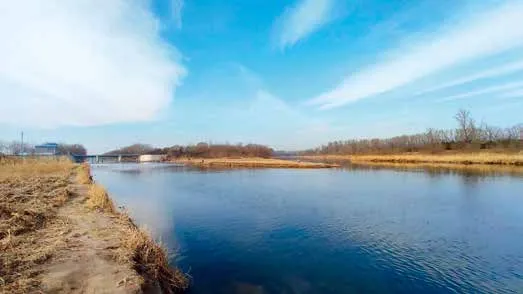
The confluence of the Qinghe and Wenyu rivers.The once-polluted Qinghe River has become clear again thanks to efforts in river management and pollution control in recent years.
From that point on, the focus of the program shifted from river research to river protection through public education and raising environmental awareness.We launched a series of guided river tours focusing on characteristics of different sections of the Qinghe River based on our research.Such a river experience twice a month enables our team to exchange ideas with residents and establish a good relationship with the communities along the Qinghe River.As a result,residents along the Qinghe River are more likely to get close to water as the environment and ecosystem of the river improves.
In 2021, we expanded our mission to more rivers.FON now offers guided river tours to the public in 14 river sections in Beijing and five river sections in Shanghai,and organizes training sessions for wetland tour guides.
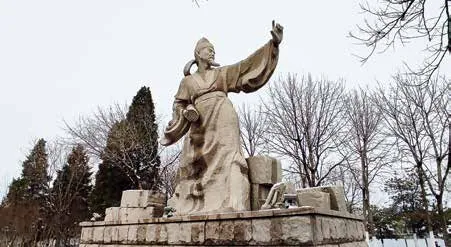
A statue of Guo Shoujing at the memorial museum for the Yuan Dynasty(1271-1368) astronomer, mathematician, and hydraulic engineer in Beijing.Guo’s most remarkable engineering feat was harnessing the water system in old Beijing, which expanded the city’s access to drinking water and improved grain transportation.
At first, I was just a visitor to the Qinghe River.I came back to learn about the river, guide people to experience its beauty, and show more river-caring volunteers how they could contribute.The common goal of protecting our rivers brings us together and inspires us to discover and cherish more of the city in which we live.
“The river comforts my soul when I see her gently bypass obstacles and tolerate all hardships,”remarked Xiaofeng, head guide of the Tonghui River Tour.“She always manages to adjust and resolve problems she faces, whether they be dangerous shoals, big falls,incoming pollution, or climate change.Before I became involved in river protection, I never bothered to think about the name of a river flowing beneath when I walked over a bridge.Now, my passion for river protection has made me acutely aware that protecting our rivers is protecting ourselves.”
May every river embracing us be guarded and flow freely and cleanly.

Chinese people generally receive mythological enlightenment from well-known myths and legends in their childhood, nearly all of which are recorded in a single compilation—.
The ancient book,probably compiled in the pre-Qin period(before 221 B.C.), is an extraordinary work featuring myriad novel plants and animals,mythical figures, deities,and legendary heroes.The book provides evidence on how Chinese ancestors understood the relationship between man and nature and the universe by recounting their fantastic and magnificent imaginations.Different parts of the book shine with varied brilliance.

A look back at the history of luxury encouragingly shows that luxury brands have become far more affordable.The widespread “luxury democracy” movement advocates that every person should be able to own at least one luxury item.With the dropping threshold of luxury consumption, China’s middle class is now a regular luxury consumer.However, rationality is necessary—excessive desire will not be satisfied by a Chanel suit or even a private jet.
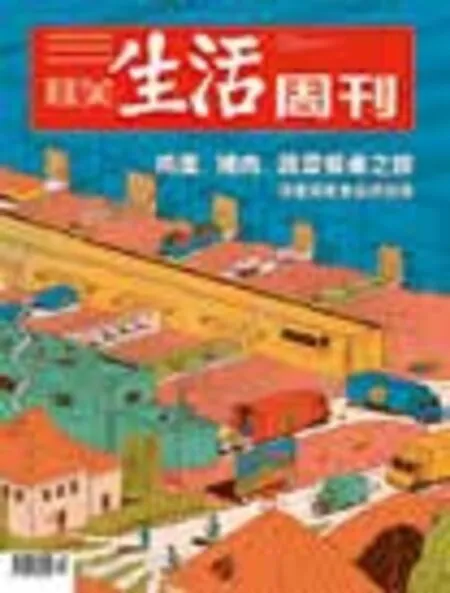
Few urbanites ponder an egg’s journey from a hen to a breakfast table.Food tends to be handily accessible regardless of its origins, whether in a wet market, supermarket,or online order.But when cities came to a standstill due to COVID-19 outbreaks, many started realizing that some things are not as easy as they used to think.
Vegetables, eggs,pork, seafood...Each category involves a quite rigorous industrial chain.Professionals in these industrial chains enable customers to have convenient access to food beyond seasonal limitations.Take a look at the industry chains delivering our daily food and the effort that goes into it.
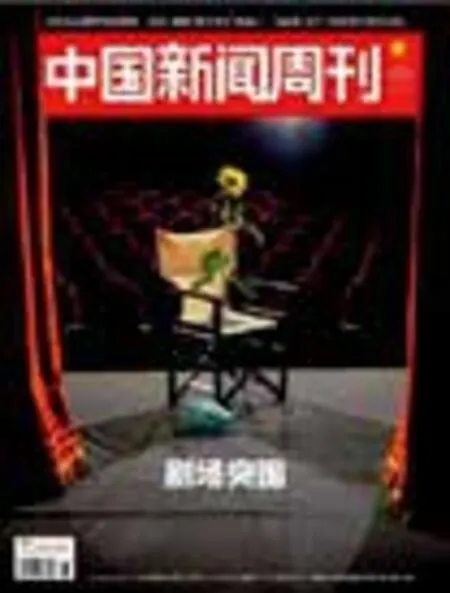
Amid the COVID-19 pandemic, many lamented the long absence of live shows while performers have faced even bleaker prospects for making a living.Last March,praised the transformation of the Shanghai Symphony Orchestra in its music coverage.The troupe has provided music performances and services via a “Cloud Theater.” Performers continue making ends meet while pursuing their passion even if their titles change from“artist” to “host” or“online celebrity.” Hence,during the pandemic,livestreaming has emerged as a sustainable solution to continue performances, ensuring artists have stable“stages” and incomes.
